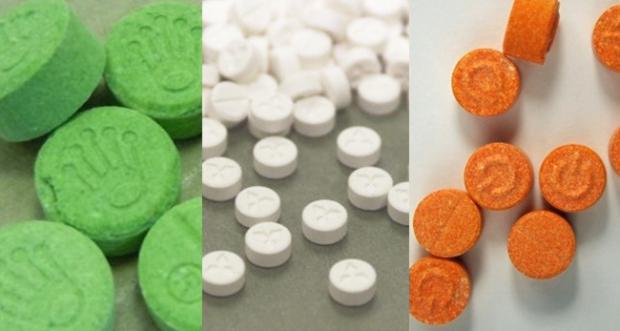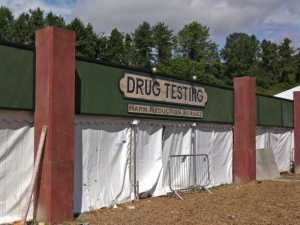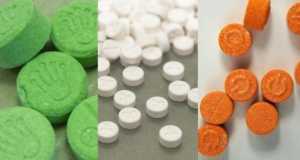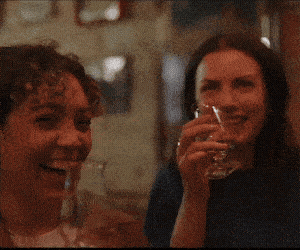
Left to their own devices

Most of you will have looked at the goods on offer – the joint, the pill, the powder – summed up your options, and decided to pass, returning to your pint and a world where you know exactly what you’re putting into your body at any given time. However, a lot of you will have given into temptation. You’ll have taken that joint, that pill or that powder, and consumed it as instructed. With any luck, you’ll have had an enjoyable evening, one enhanced by this mysterious chemical, one where you wake up the next day a little groggy but still in control of your basic faculties.
And, depending on your level of enjoyment, you may decide to do it again, to search out that random guy who hangs out in that pub you never go to, and purchase some more of his wares. You’ll follow the same process as before, being as careful as you can, and wait expectantly for a similarly exhilarating experience. Most of the time you’ll get it. But occasionally you won’t. Occasionally you’ll get it wrong, you’ll take too much of the wrong kind of stuff and have a night so bad you’ll wish you’d never strayed from your nice, safe pint of Guinness.
If you’re lucky though, even after the worst of nights, you’ll wake up the next morning, shaken, a bit stirred, but in one piece. You’ll put it down to experience; consider it an oversight, one you won’t repeat. But that’s the thing; taking any kind of street drug, regardless of your experience, is intrinsically reckless. Whether you’re a twenty-year veteran of the rave scene or a curious adolescent seeking out their first high, the risks are the same. Purchasing a synthetic drug from an untrusted source and putting it into your body is to dice with death. Most of the time it’ll all go swimmingly. But you need only be unlucky once.

As a result, drug-related deaths in each of these countries has decreased dramatically. Indeed, in 2015, having tested several samples of a potentially lethal Ecstasy tablet, the DIMS put out a warning on Dutch television, advising party-goers to avoid all pills bearing the Superman logo. To quantify the impact of this service you need only witness events in the UK a few weeks later. There four people died after taking those very same pills, the ones bearing the Superman logo, the ones Dutch authorities had warned everyone about. The UK, like ourselves, doesn’t currently offer free drug testing.
Last year a legislation to introduce free drug testing in Ireland was mooted. It was a reaction to a series of surveys which placed us among the highest consumers of Ecstasy in the world. A 2015 poll ranked us second to Australia in terms of worldwide Ecstasy consumption. And this year, a Global Drugs Survey revealed that we are the world’s largest MDMA users, with 40% of a specified target group admitting to taking the drug at some point in the past twelve months. In short, we are in the midst of an ecstasy epidemic – and that’s before you even consider the amount of cocaine, cannabis, heroin and other substances, consumed by Irish people on a daily basis.
Yet the legislation has been dismissed out of hand by our government. Instead, we will see amnesty bins introduced, disposal sites where panic-stricken clubbers can dump their drugs if they feel they’re about to be searched. Those who discard of their narcotics this way will not be charged and the hope is that this will prevent users from swallowing large quantities of dangerous chemicals. The further hope is that by analysing the contents of these bins, authorities can gain a better understanding of the drugs in circulation at any given time.
While these amnesty bins may indeed go some way towards saving lives, this is just another half-measure from a government terrified to bring about proper changes to our drug laws. Only recently a legislation to introduce medicinal marijuana as a recognised remedy for those in need was rejected by the Health Committee. The committee, which contained politicians from all our leading parties, cited concerns about “leakage of supply” and “overuse by patients” when rejecting the Bill. But at least that Bill got through the Dáil before falling at the final hurdle. The free drug testing legislation hasn’t even made it that far.

Barely a month goes by in this country where we don’t hear about a drug-related death, a youngster with the world at their feet, snuffed out by a pill or powder containing all manner of toxic substances. None of those kids needed to die, not one of them. They could all so easily have been saved. A simple test, one taking just a matter of minutes, would have told them that the item in their possession was not fit for human consumption under any means, and that to do so would result in a near-death experience. No one is suggesting a lawless state where Ecstasy pills are dispensed from vending machines to wide-eyed, gurning teenagers; but a bit of common-sense, the introduction of a policy which has been proven to work in other countries, which has saved numerous lives, would be a start.
We drink, therefore we are

Meanwhile, those whose poison comes only in liquid form are about to have their bubble burst by Minister for Health, Simon Harris. The forthcoming new Alcohol Bill, which primarily aims to curtail drink-driving, will also instruct retailers to introduce minimum pricing for alcohol. Influenced by claims that women in this country can reach their recommended weekly intake of alcohol for as little as €5, the Minister wants to eradicate binge-drinking among both sexes and across all ages by making booze more expensive. And he hopes to have these new measures in place by the end of the year.
So, essentially, this means that your local off-license or your local supermarket will no longer be able to flog cheap cans of Latvian lager for the same price as a packet of Tayto. Those murky bottles of Chilean wine you so enjoy will also become more expensive, as will that tasty little gin which you’ve drinking by the gallon since gin became all trendy last year.
In a way this is sad news, it almost feels like some inconsiderate fools have ruined the fun for everyone else, like we’re all being punished because a few twentysomethings reported to A & E with early signs of liver disease. Just like drugs, people are going to drink to excess regardless of the price. Yes, hiking the cost of alcohol will reduce the number of people reporting to their GPs with such symptoms, but this goes beyond mere finances.
The economic collapse brought about an end to pub culture in this country, but it also created a new culture, one shaped around getting as much alcohol on board as you could before you’d even left the house, getting so drunk that you didn’t need to worry about the extortionate prices in your local. I’m afraid changing that mindset will take a lot more than a few price hikes.


